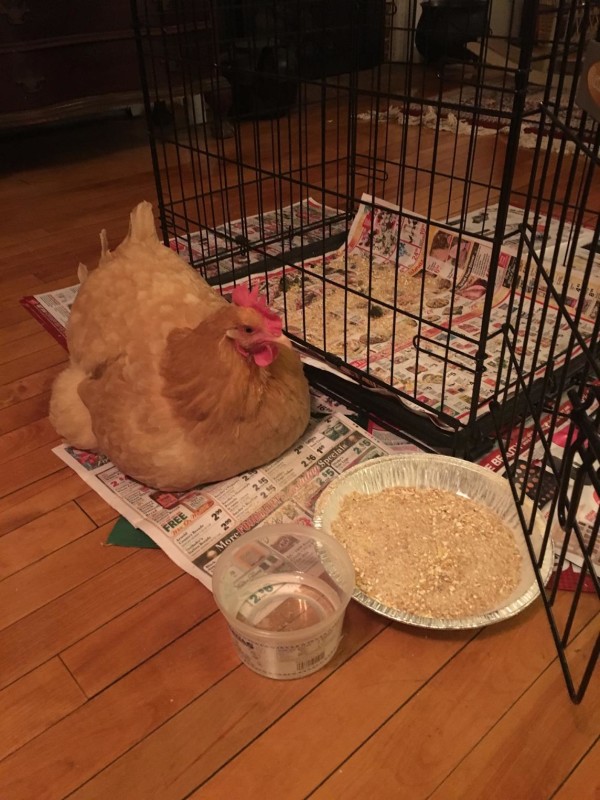Are backyard chickens OK in the cold?
Are backyard chickens OK in the cold? Learn about the birds’ natural protections, and what’s safe to help keep them comfortable in winter.

For nine years, Denise Card has kept a small flock of chickens in the backyard of her home in the Tough End neighborhood of Orono, Maine.
She loves “her girls” and tries to keep them safe and happy in the cold weather, which sometimes dips to well below zero degrees Fahrenheit.
But one thing many Mainers do to keep their poultry warm in the winter – install heat lamps in their coop – scares her.
“There’s so many people who want to heat with lights. It’s just really dangerous,” Card said. “Heat lamps are so dangerous. They fall over. Chickens can fly into them. Dust can get into them and can ignite. Heat lights can burn down farm buildings all the time.”
Although it may be a temptation to use a heat lamp, she and other poultry aficionados say it isn’t worth it. Scott DeMoranville of 4Ds Farm in Bradford, Maine, has raised poultry for more than 40 years and enjoys educating others about the joys and challenges of raising backyard chickens and other birds on the Facebook page Maine Poultry Connection. During
On the Facebook page, DeMoranville tries to make it clear that chickens are born wearing warm down coats and that responsible chicken owners don’t actually need to do much more to make sure they stay safe in the winter.
“Nature has provided for those birds,” he said. “You give them adequate housing and bedding for the roosts, and they don’t need any heat. I tell people all the time: Think of the wild birds. They roost in a big tree. They don’t have a roof over their heads. They do fine.”
A 250-watt heat lamp bulb can get so hot that it can ignite an errant pine shaving or plywood, especially if a 4-plus pound chicken accidentally flies up toward it and knocked it down.
“We have a couple members of the Maine Poultry Connection that in the last five years have lost their homes to heat lamps. There’s already been barn fires this year because of them.”
DeMoranville recommends never using anything with a heat source in a henhouse, including a water heater.
“If people want to heat it, I suggest they put heated water outside,” he said.
As for frostbite on chicken’s combs, he said the best thing is to have a well-ventilated henhouse. People should clean chicken droppings out of the henhouses, with a focus on changing heavily soiled bedding. That will help reduce moisture in the coop, he said.
“For a chicken to be breathing moist air constantly is a recipe for illness,” he said.
Finally, if people use artificial light in the coops to encourage their hens to lay, DeMoranville recommends waking the birds up with the artificial light but letting them go to bed with the sun. Otherwise, the plan can backfire. That’s because the chickens’ metabolism slows down when the sun starts to set. The birds “eat ferociously,” he said, so they fill their crops to digest overnight.
“With artificial light, chickens don’t know enough to fill their crops. They don’t know enough to get on their roosts. It stresses them out. They go to bed hungry and ill-prepared,” he said. “A bird that is stressed tends not to lay eggs.”
